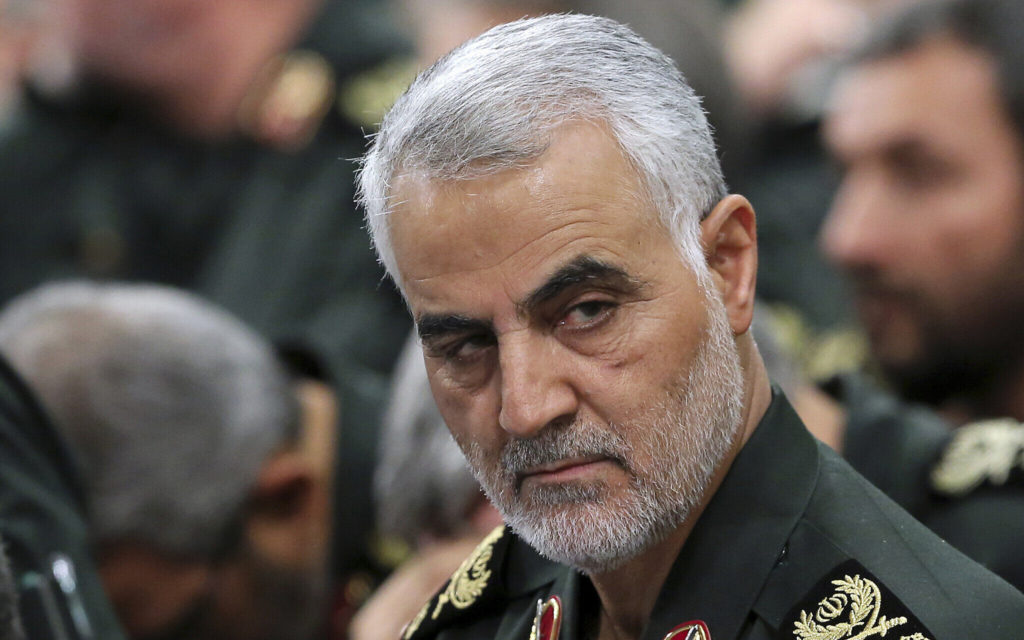MEDIA RELEASES
AIJAC expresses cautious optimism following death of arch-terrorist Soleimani
January 7, 2020 | AIJAC staff

The Australia/Israel & Jewish Affairs Council (AIJAC) has reacted with cautious optimism to the killing by US forces of Iranian arch-terrorist Qassem Soleimani, the Commander of the Quds Force of the Islamic Revolutionary Guards.
AIJAC Executive Director Dr Colin Rubenstein AM said, “In killing Soleimani, the US has struck a major blow against violence in the Middle East.”
“The Quds Force is the branch of Iran’s Armed Forces responsible for all of the regime’s activities to interfere in and undermine its neighbours, including supporting, training, arming and directing numerous terrorist groups,” Dr. Rubenstein said.
“Soleimani’s fingerprints were all over the regime’s most nefarious activities, including the killing of hundreds of US troops in Iraq, the killing of hundreds of thousands of Syrians and the displacement of millions more to prop up the Assad regime, the effective takeover of Lebanon by the terrorist Hezbollah organisation and its arming with well over 100,000 missiles, the attacks on Israel by the Hamas and Palestinian Islamic Jihad terror groups, the uprising by the Houthis against the recognised Government of Yemen and the subsequent bloody Civil War there, numerous missile attacks on Saudi Arabia including a devastating hit on its oilfields, and the killing of hundreds of anti-government protesters in Iraq and in Iran itself.
“The primacy to the Iranian regime of ‘exporting the Revolution’ meant that Soleimani was, in effect, the country’s senior military leader, and had access to billions of dollars made available to the regime by the Iran nuclear deal that could have otherwise been used to improve the standard of living of Iranian civilians.
“Soleimani and his regime thought they could continue these activities without experiencing any consequences for their actions. However, attacks on Americans in Iraq and then on the US Embassy there, and intelligence that Soleimani was preparing further attacks on Americans, were apparently red lines for the US Administration. While there are calculated risks in the US actions, allowing Iran to spread violence, terrorism, subversion and extremism unchecked would be an even more risky, destructive and dangerous course of action.”
AIJAC National Chairman Mark Leibler AC added, “We hope the Iranian regime will draw the correct conclusion from the US action, that being that it can no longer act as a rogue state, exporting terrorism, fomenting violence and causing disruption throughout the Middle East with impunity. The Middle East will be a much safer place if Iran reacts appropriately and starts behaving like a normal state actor.
“Sadly, the Iranian regime does have the capacity to cause more bloodshed and destruction throughout the region, but it would ultimately be profoundly costly and against its best interests to do so.”
For additional information, contact AIJAC on (03)-9681-6660.





